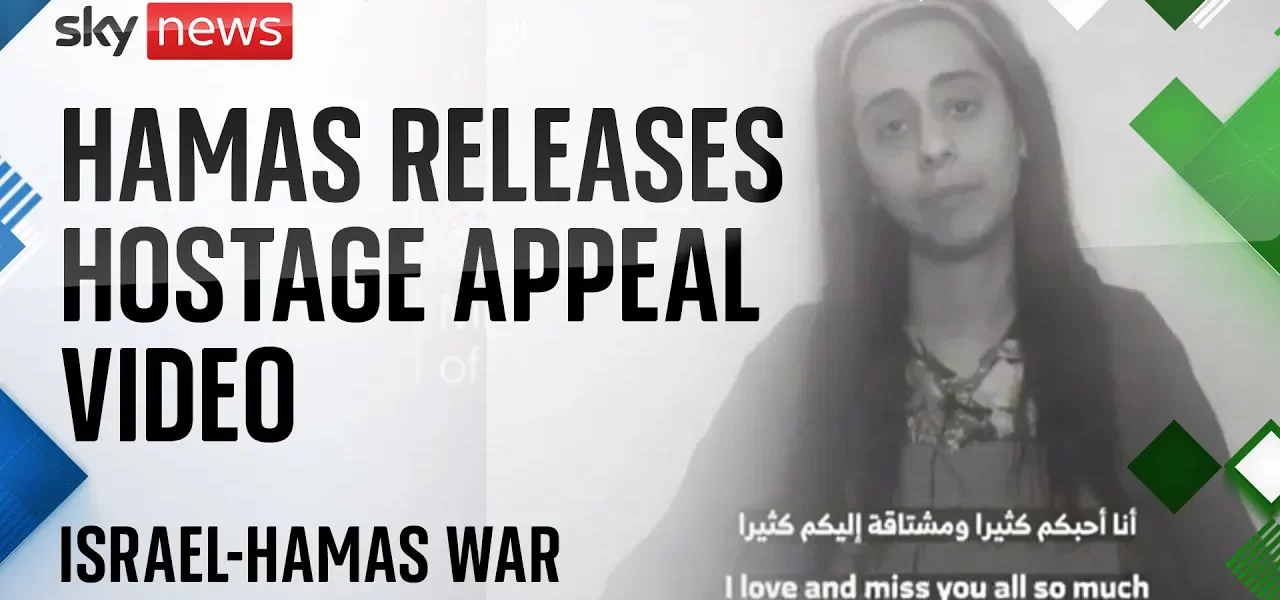Hamas Releases Hostage Video Amidst Tensions with Israel

This article delves into the recent developments surrounding the hostage situation involving Israeli citizens, the implications of Hamas’s video release, and the UK’s controversial arms license suspension to Israel, shedding light on the ongoing geopolitical tensions in the region.
Introduction
In a significant escalation of the ongoing conflict between Israel and Hamas, the latter has released a video featuring one of the Israeli hostages, Eden Rami. This release coincides with alarming developments regarding the UK’s decision to suspend certain arms licenses to Israel. The video not only highlights the critical nature of the hostage situation but also serves as a strategic maneuver by Hamas to exert pressure on the Israeli government. This article explores the context surrounding these events, the reactions from involved parties, and the broader implications for international relations and humanitarian law.
Details of the Hostage Video Release
Content of the Video
On the night of the release, Hamas shared two videos. The first video featured the six Israeli hostages whose bodies were discovered over the weekend, each identifying themselves and their origins. The second video focused on Eden Rami, who made a heartfelt plea to the Israeli government for a hostage deal. In her message, Rami expressed her fears of being harmed by Israeli military actions and directly addressed her family, creating an emotional appeal that resonated deeply with viewers.
Family and Government Reactions
The reaction to Rami’s video was immediate and intense. Her family criticized the video, alleging it was a form of psychological warfare orchestrated by Hamas. This sentiment was echoed by Israeli officials who viewed the video as a calculated effort to manipulate public perception and pressure the Israeli government into negotiations. Prime Minister Benjamin Netanyahu responded firmly, asserting that the government would not yield to such tactics.
Implications of the Video Release
Psychological Warfare and Policy Impact
The release of the video has been characterized as an attempt by Hamas to leverage psychological pressure on the Israeli government. Hostage situations often evoke strong emotional responses, and Hamas is likely aiming to sway public opinion in Israel to favor negotiations. The implications of such actions can be profound, affecting both domestic policy and international perceptions of the conflict.
Threats from Hamas
Following the video release, Hamas issued explicit threats regarding the safety of hostages, warning that any military operations aimed at rescue could result in the immediate execution of captives. This stark warning underscores the heightened tensions and the precarious nature of hostage situations in conflict zones.
UK Government’s Arms License Suspension
Context and Reasoning
The UK government recently announced the suspension of several arms licenses to Israel due to concerns regarding potential violations of international humanitarian law in Gaza. This decision has been met with criticism from various quarters, including Israeli officials and prominent figures such as the UK Chief Rabbi. The government stated that the suspension is not a blanket ban but rather a case-by-case assessment, reflecting a cautious approach to arms exports.
Political Reactions and Historical Precedents
The reaction from Israeli leadership has been one of disappointment, with Netanyahu labeling the decision as shameful. The context of this suspension is significant; it marks a shift in the UK’s foreign policy approach, contrasting with previous administrations. Historical parallels were drawn to past suspensions during conflicts, highlighting a pattern where such measures are often lifted following ceasefires.
Conclusion
The release of the hostage video by Hamas and the UK’s decision to suspend arms licenses to Israel represent critical junctures in the ongoing conflict. These developments not only reflect the immediate humanitarian concerns but also signal shifting political landscapes and the complexities of international diplomacy. As the situation evolves, it remains crucial for all parties to prioritize dialogue and negotiation to prevent further escalation. For more insights on the ongoing conflict and related topics, visit our articles on Middle Eastern geopolitics and humanitarian law.
“`




